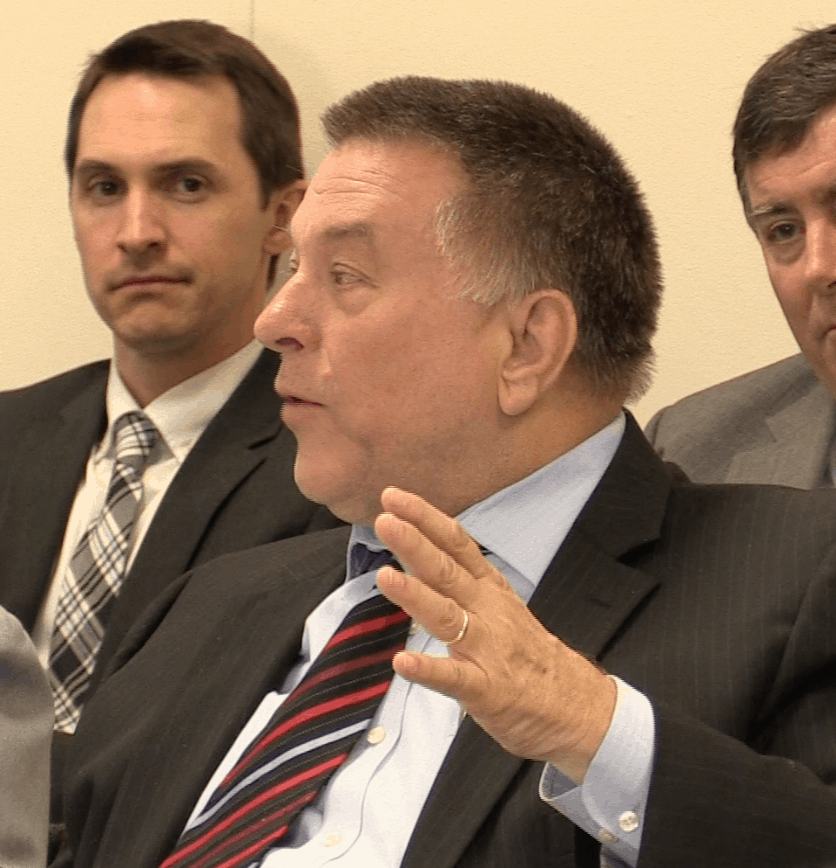

Rep. Paul Stam, R-Wake, Speaker Pro Tempore, dropped a draft of legislation with some far-reaching implications onto the desks of fellow members of the House Select Committee on Education Strategy and Practices this morning.
The legislation has multiple parts but begins by limiting severance pay for superintendents to one year salary and bonus.
“Superintendents are very highly paid,” Stam said during the Committee meeting. “But there’s an explosion of severance packages.”
The News & Observer reported in February on a provision added to Wake County Superintendent Jim Merrill’s contract that would give him up to two years of severance pay — more than $560,000 — if he was fired before the contract was up.
And as far back as 2013, WRAL.com was reporting about some superintendent contracts that included anywhere from one to two years of severance.
“If we had a limit on the severance packages across the state, then our more rural counties wouldn’t have to compete so badly against the urban counties, which can afford that extravagance,” Stam said.
The change would not apply to current superintendent contracts.
Stam’s draft legislation includes a number of other provisions.
Taking teacher pay out of the public record
Stam’s legislation would take individual teacher pay out of the public record, meaning that the public could no longer know what individual teachers are receiving in salary from the state. Stam said it only applied to “lower level” teachers, not, management, principals, or superintendents.
He said this would prevent jealousy that could result if teachers receive differentiated pay — different pay amounts based on their skills or responsibilities.
“One of the real problems for differentiated pay or merit pay or whatever you want to call it is frankly envy and jealousy,” he said. “People don’t like the idea that other people will know what your salary is.”
He said base teacher salaries, step increases, and longevity would all still be public record. The public simply could not get the salary records of a specific teacher.
Advances degrees with no teaching license
Another part of Stam’s proposed bill would allow people with a masters or a doctorate degree to teach in the subject area of the degree without forcing them to have a teaching license.
He said it would reduce paperwork and wouldn’t be a risk since they would be subject to the oversight of their principals.
“Since you’re not teaching on a contract, if the principal thinks you’re a sorry teacher, they could get rid of you,” he said.
This could also make it easier for teachers to come in to school districts through lateral entry — moving into education from a non education-related field.
Fixing problems with principal pay
In presentations before the Committee this year, members have heard about some of the issues with principal pay. One of these issues had to do with administrators that made less than they would as teachers. This happens because of things like extra pay for teachers with National Board Certification that doesn’t continue to apply as these teachers move into administration. See our coverage of the principal pay issues here.
The crux of Stam’s change comes down to one term: “break in service.”
The law previously said that a teacher who became an assistant principal would get at least as much as he or she would have as a teacher if there was no break in service between positions. If the teacher took a year off before becoming an assistant principal, however, the law wouldn’t apply.
The same applies to an assistant principal who becomes a principal. The law says he or she shall make at least as much as he or she would have as an assistant principal if there were no break in service.
The change in Stam’s bill takes out the “break in service.” So, a teacher who becomes an assistant principal, or an assistant principal who becomes a principal, will make as much as he or she did in the previous position, regardless.
One last provision in Stam’s proposed bill orders the State Board of Education to come up with rules for expediting licensing for qualifying spouses of active duty military personnel.
The spring short session of the General Assembly begins April 25.
Below is the video of Stam’s presentation.


